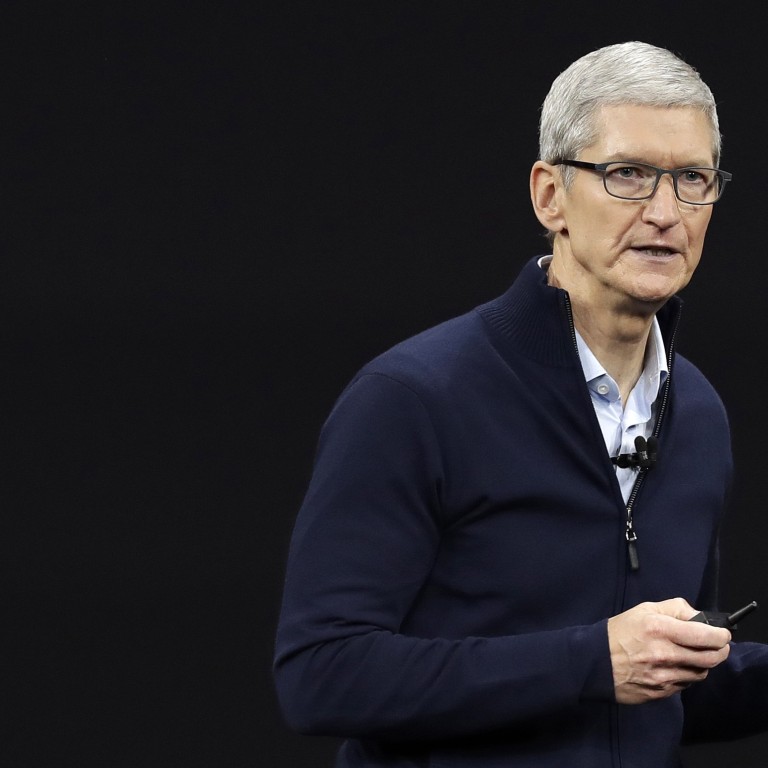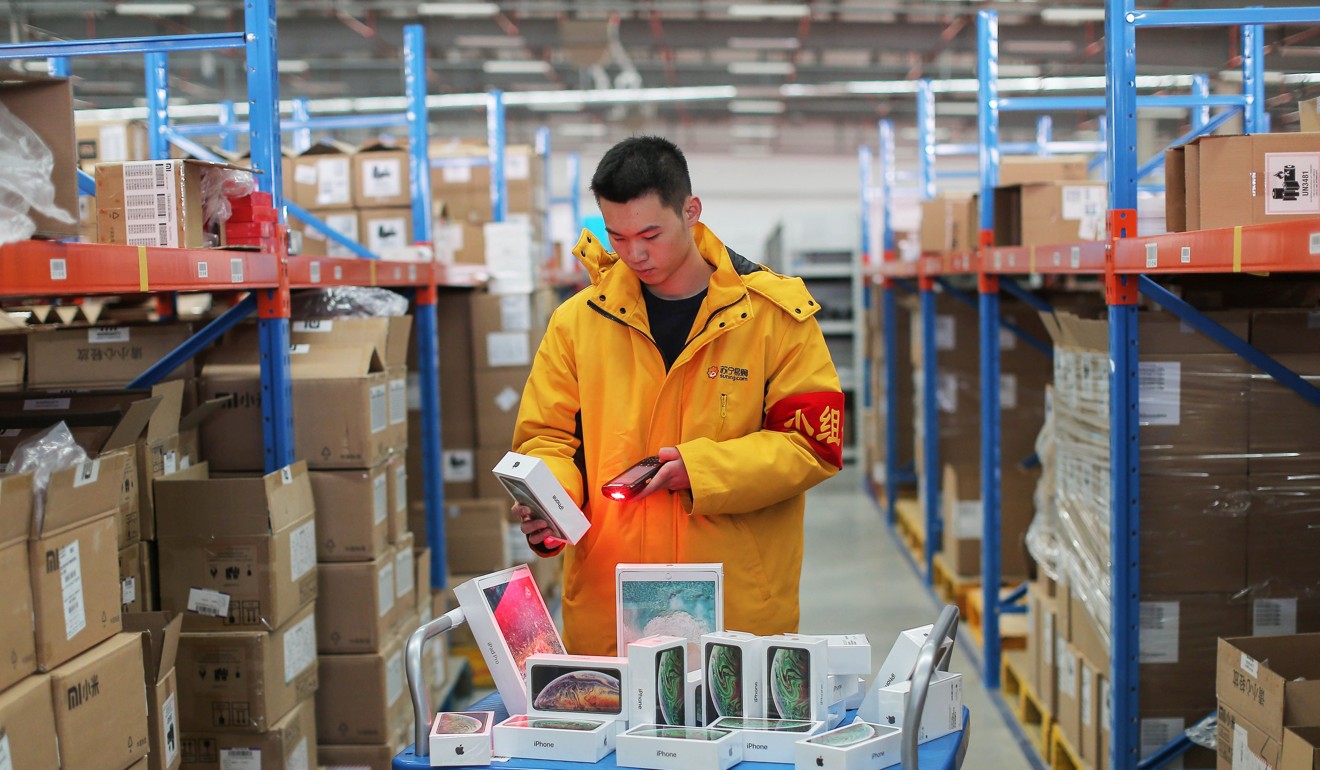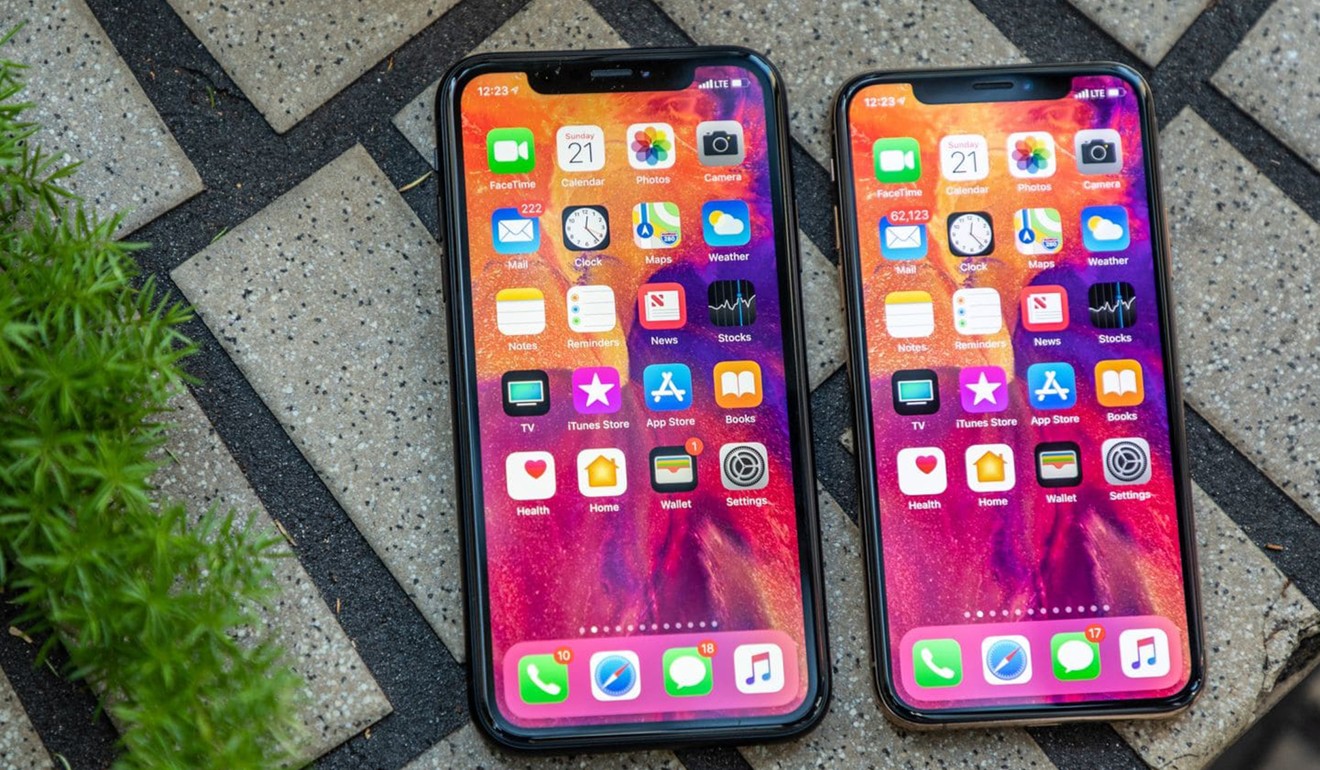
Not just the slowing Chinese economy to blame for slower iPhone sales – other factors at play
- China’s top three smartphone brands registered positive growth in the first three quarters while iPhone’s China sales were down 12 per cent
While Apple chief executive Tim Cook blamed a weak Chinese economy for a downgrade in revenue guidance for the quarter ending December, analysts say he may be glossing over strategy missteps and the effects of fierce competition from fast-improving Chinese smartphone brands.
Attributing lacklustre sales to the economic downturn is one-sided as three of the top five smartphone brands, Huawei Technologies, Vivo and Xiaomi, all registered positive growth in the first three quarters of 2018, during which time shipments of Apple’s iPhone declined by about 12 per cent, Jia Mo, an analyst from research agency Canalys, said in a phone interview.
“In fact, Apple is doing a good job selling premium handsets, but it faces challenges selling cheaper and older iPhone models in China as consumers would opt for local Chinese brands instead,” said Jia, adding that in the third quarter the iPhone XS Max, Apple’s most expensive model, shipped more units in China than the US.
Cupertino, California-based Apple on Wednesday lowered its revenue guidance for the quarter ended December 29, citing tougher than expected Chinese market conditions and fewer iPhone upgrades.
In a letter to investors dated January 2, Cook wrote that the GDP growth figure provided by the Chinese government-for the quarter ended September was the second lowest in 25 years.
“We believe the economic environment in China has been further impacted by rising trade tensions with the United States. As the climate of mounting uncertainty weighed on financial markets, the effects appeared to reach consumers as well, with traffic to our retail stores and our channel partners in China declining as the quarter progressed,” Cook said.
“And market data has shown that the contraction in Greater China’s smartphone market has been particularly sharp,” he added.
Zhang Mengmeng, a research analyst with Counterpoint, said that because of their pricing, iPhones are considered luxury items by Chinese consumers, who have tightened up their spending on luxury goods over the last year.

Dan Wang, an analyst at The Economist Intelligence Unit, said Apple’s lower guidance was not a direct result of the trade war because its products are exempt from the tariffs. “China’s economy has slowed not because of tariffs, but rather, because of deleveraging,” he said.
Wang believes some city governments might end up offering subsidies to Foxconn Technology Group, which employs 1 million workers in a dozen factories across China manufacturing Apple products, to help stabilise local employment conditions.
Although smartphone shipment figures for the December quarter have not been released by any research agency, Canalys said it expects the overall Chinese market – the largest in the world – will see a 12 per cent year-on-year decline for 2018.
However, among the top five vendors in China – Huawei, Vivo, Oppo, Xiaomi and Apple, which control a combined market share of some 90 per cent – only Oppo and Apple are expected to see growth declines for the year, Jia said.
China’s high-end market expanded last year with shipments of smartphones priced above US$800 increasing 53 per cent year on year in the first three quarters, during which time Apple’s most expensive iPhone X and iPhone XS handsets, priced around US$1,500 in China, registered notable growth.

But the cheaper iPhones, particularly the new XR models priced 30 per cent below the premium XS models, have not been received well in China, according to analysts.
Less than a month after the iPhone XR hit the shelves in the country, Apple informed two of its suppliers in China that it would reduce orders for their respective components by around 30 per cent from what was originally planned because sales had fallen short of the US company’s expectations, the South China Morning Post reported earlier.
In contrast to Apple’s sales decline, Huawei shipped a record 200 million units globally in 2018, surpassing Apple in global shipments for two consecutive quarters last year.

